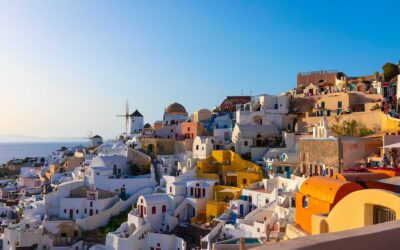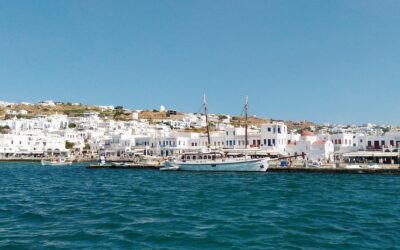
As the cradle of Western civilization, Greece has long been a beacon for travelers seeking history, culture, and natural beauty. With the rise of technology, the landscape of the tourism industry in Greece is evolving, promising a more efficient, immersive, and personalized experience for visitors by 2025. This transformation can be likened to a digital oracle—much like the famed Delphic Oracle of ancient Greece—offering insights into the future of travel.
The Current Landscape
Before diving into the future, it’s essential to understand the current state of tourism in Greece. The country welcomed over 30 million visitors in 2019, contributing significantly to its GDP. However, the COVID-19 pandemic exposed vulnerabilities in the sector, prompting stakeholders to adapt swiftly. With recovery underway, it’s clear that technology will play a pivotal role in reshaping how tourists experience Greece.
Smart Destinations: A Connected Experience
By 2025, smart technology will redefine the notion of a “destination.” Smart cities across Greece—such as Athens, Thessaloniki, and even island hubs like Santorini—will embrace interconnected systems for transportation, accommodation, and cultural offerings.
IoT and Data Analytics: Through the Internet of Things (IoT), cities will monitor tourist patterns, crowd management, and resource allocation, ensuring a smoother experience. Data analytics will help local businesses tailor services based on traveler preferences and behaviors.
- Mobile Apps and AI Assistants: Apps providing real-time information on tours, transportation, and local events will become indispensable. AI chatbots will cater to tourists’ inquiries 24/7, making information more accessible.
Enhanced Travel Experiences
Technology is set to transform experiences at historical sites and natural wonders, creating immersive environments through augmented and virtual reality.
Virtual Reality (VR): Imagine exploring ancient ruins like the Acropolis or Delphi, not just as static monuments but as vibrant historical sites with reenactments of historical events, accessible through VR headsets.
- Augmented Reality (AR): AR applications on smartphones will overlay historical details, artworks, and narratives onto physical sites, giving visitors an enriched understanding of Greece’s storied past.
Personalized Itineraries
The future of tourism will emphasize personalization. Using AI and machine learning, travel platforms will create bespoke itineraries based on individual preferences, budgets, and interests.
Tailored Recommendations: Data-driven algorithms will suggest unique experiences—be it a traditional cooking class in a small village or a hiking adventure in the stunning Meteora region—ensuring that every traveler finds something just for them.
- Sustainable Tourism: As environmental awareness grows, tech solutions will help promote sustainable practices. Apps will guide tourists towards eco-friendly options, allowing them to explore while preserving Greece’s natural beauty.
E-Ticketing and Contactless Travel
The e-commerce boom, accelerated by the pandemic, will continue to reshape how travelers book their journeys and experiences in Greece.
Seamless Booking: E-ticketing systems will enable visitors to effortlessly book entries to museums, archaeological sites, and events without long queues, enhancing convenience.
- Contactless Solutions: Enhanced safety measures will promote contactless check-ins at hotels and digital payment systems, ensuring a fast, secure travel experience.
Revitalizing Local Economies
The adoption of digital solutions will not only benefit tourists but also rejuvenate local economies, particularly in less-traveled areas.
Supporting Local Businesses: Digital platforms will connect travelers with local artisans, restaurants, and providers, fostering community engagement and economic growth.
- Promoting Cultural Heritage: Technology will enable a broader audience to appreciate Greece’s rich cultural heritage through online exhibitions and virtual tours, thus enticing more visitors to experience it firsthand.
Conclusion
As Greece approaches 2025, the intersection of technology and tourism promises a vibrant future, reminiscent of the insights once sought from the Delphic Oracle. The evolution toward smart tourism—globally conscious, culturally rich, and digitally connected—will enhance not only the visitor experience but also support local communities and preserve the authenticity that makes Greece a timeless destination.
By embracing technological innovations, Greece is poised to redefine its allure, ensuring that it remains a cornerstone of world tourism for generations to come.










